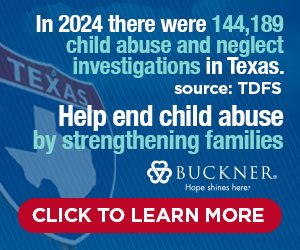Hispanic Texas Baptist churches and ministries that serve immigrants are feeling the effects of the suspension of Temporary Protected Status and humanitarian parole programs, along with the overarching threat of mass deportations.
Both Temporary Protected Status and humanitarian parole offer short-term refuge to vetted foreign nationals who face unsafe conditions in their homelands.
On Jan. 20, President Donald Trump issued an executive order instructing the Secretary of Homeland Security to terminate categorical parole programs considered contrary to the policy of securing the nation’s borders.
On March 25, the Department of Homeland Security announced the termination of the parole program for immigrants from Cuba, Haiti, Nicaragua and Venezuela, along with their immediate family members, effective April 24.
Six days later, a federal judge in San Franciso issued an order to postpone the program’s termination, but the Department of Homeland Security promptly filed notice of its intention to appeal.
The program affects hundreds of thousands of people who entered the United States to flee danger and oppression, Jesse Rincones, executive director, Convención Bautista Hispana de Texas, noted.
“It is devastating that half a million people will be displaced, even though they obtained U.S. financial sponsors and were not a drain on the government’s resources,” said Rincones, who is both a pastor and an attorney.
“Many of those soon to be cast out include our Christian brothers and sisters and pastors. We pray for God’s great protection over their lives and uncertain futures.”
Afraid of an uncertain future
Fernando Rojas, lead pastor of Iglesia Bautista Azle Avenue in Fort Worth, said the suspension of humanitarian parole and Temporary Protected Status will not directly affect members of his congregation, but it impacts people the church serves through its ministry to immigrants, Vida Nueva Immigration Services.
Sign up for our weekly edition and get all our headlines in your inbox on Thursdays
“A lot of people from our community are being negatively impacted by these changes and are afraid of the uncertainty of their future,” Rojas said.
“Multiple people have contacted our office from Cuba and Venezuela regarding these changes, and, unfortunately, we are no longer able to help them.”
The director of another ministry to immigrants launched by a Texas Baptist church asked not to be identified, saying the ministry did “not want to be targeted.”
The ministry typically provides legal referrals and spiritual counsel to immigrants, he noted.
“We offer the comfort of Jesus,” he said. “It a ministry of accompaniment—coming alongside them, listening to their struggles, providing counsel and giving support.”
In the last two months, the number of immigrants coming to the ministry seeking assistance has dropped by more than half, he noted.
While the number of people in the immediate community directly affected by the suspension of Temporary Protected Status is small, he pointed to an overarching general fear of mass deportation among immigrants.
“People are scared to seek our services,” he said.
As a result, the ministry is exploring the possibility of opening remote sites near where the immigrants live.
Call for mercy, justice and humble service
Rolando Rodriguez, director of Texas Baptists en Español, believes Christians must respond with compassion to people living in desperate circumstances.
“I believe that, without a doubt, removing the protection that allows so many people to continue legally in this country, working and providing for their families, will have an effect on local congregations,” Rodriguez said.
“However, I would argue that the greater impact will be on families. We are talking about children, young people and entire families who will be affected. In many cases, it is likely that they have lost everything in their home country.”
Christians have a “responsibility to help and serve people, regardless of their legal status,” he continued.
He pointed specifically to Micah 6:8, which says, “He has shown you, O mortal, what is good. And what does the LORD require of you? To act justly and to love mercy and to walk humbly with your God.”
God “wants Christians who are not just going through the motions of their faith,” Rodriguez said. The prophet’s use of the word “you” indicates “everyone is personally responsible for their actions,” he added.
God’s people are called to justice, mercy and humble service, he asserted.
“Justice means fairness, righteousness, and equity. It demands practice that honors the rights of others and strengthens social justice. To act justly is to speak for those without a voice, to advocate for those without agency, and to make sure that justice is done,” Rodriguez said.
“Mercy conveys a sense of loyal love, kindness, and compassion. This is not a simple action, but an attitude of the heart.
“Walking humbly is an attitude of submission and reliance on God. It recognizes human frailty and the need for heavenly direction.”
















We seek to connect God’s story and God’s people around the world. To learn more about God’s story, click here.
Send comments and feedback to Eric Black, our editor. For comments to be published, please specify “letter to the editor.” Maximum length for publication is 300 words.